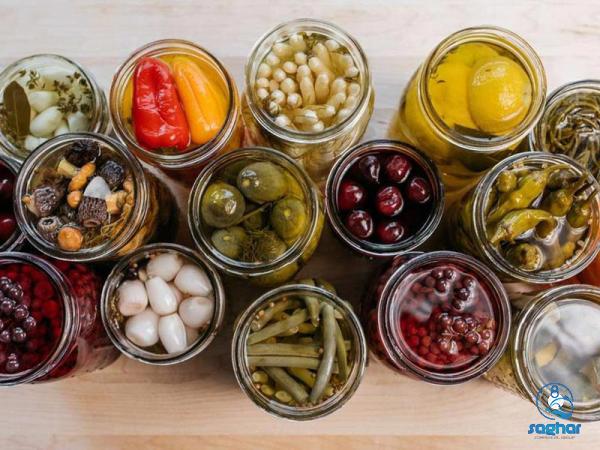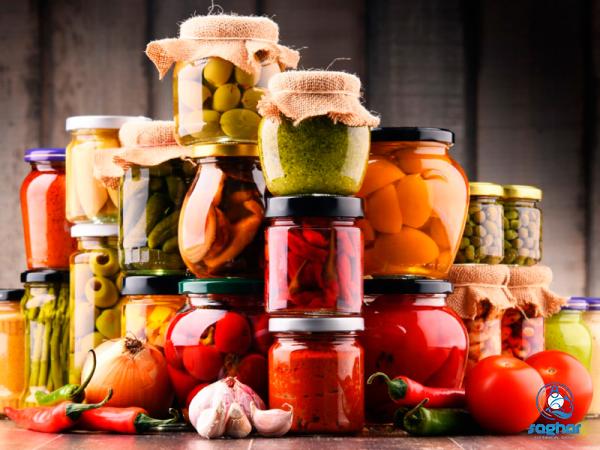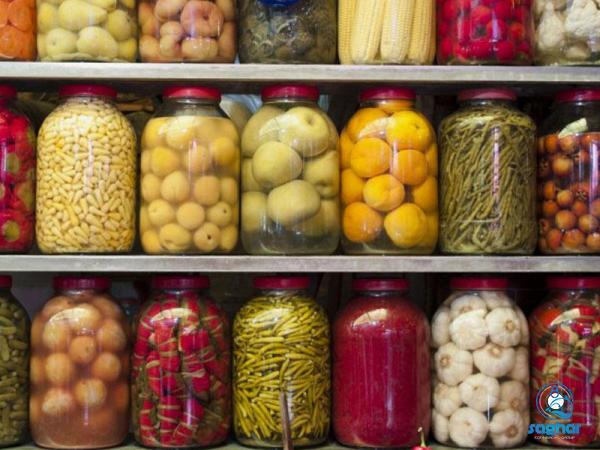A High-Quality and Convenient Option for Modern Consumers Introduction: Canned food has become a staple in the diets of millions of people worldwide. With its convenience, long shelf-life, and availability, canned food has gained immense popularity. However, there are often concerns about the quality of canned food and its nutritional value. This article intends to debunk the common myths surrounding canned food and highlight how it can be a high-quality option for consumers. 1. Safety Measures and Regulations: Canned food safety is regulated by various government agencies, such as the Food and Drug Administration (FDA) in the United States and the European Food Safety Authority (EFSA) in Europe. These agencies enforce strict guidelines to ensure that manufacturers follow proper canning procedures and adhere to food safety standards. Quality control measures include regular inspections, laboratory testing, and adherence to best practices in food production. These measures ensure that canned food is safe for consumption. 2. Nutritional Value: Contrary to popular belief, canned food can retain its nutritional value. The canning process involves cleaning, cutting, and sometimes blanching the food before sealing it in a can. This process is carried out quickly to preserve the freshness and nutritional content of the food. Nutrients such as vitamins, minerals, and antioxidants are well-preserved due to the air-tight sealing of canned foods. In fact, canned vegetables and fruits can sometimes have higher nutritional value compared to fresh options, as they are often picked at peak ripeness and canned immediately, preserving their nutrients. 3. Quality Ingredients: The quality of the ingredients used in canned food is crucial to its overall quality. Reputable manufacturers source their ingredients from trusted suppliers and conduct rigorous quality checks at every stage of production. Freshness, taste, and nutritional value are given top priority, ensuring that consumers receive high-quality products. Furthermore, canned food is often made from seasonal produce, allowing consumers to enjoy their favorite fruits and vegetables all year round. 4. Flash-Freezing for Optimal Flavor and Texture: To maintain the quality of canned food, flash-freezing techniques may be used before the canning process. This involves freezing the food quickly at extremely low temperatures to lock in its flavor, texture, and nutritional value. Flash-freezing preserves the taste and reduces the risk of nutrient loss during storage. It also allows consumers to enjoy the same level of freshness and quality as if they were consuming freshly harvested produce. 5. Extended Shelf-Life and Reduced Food Waste: Canned food has a significantly longer shelf-life compared to fresh produce, making it an excellent option for those seeking long-lasting food options. The canning process effectively preserves food, preventing spoilage and reducing food waste. This is particularly important in today’s fast-paced lifestyle, where consumers often struggle to consume fresh produce before it spoils. By choosing canned food, consumers can reduce food waste and have a reliable food source that can be stored for extended periods.

Canned foods
 6. Convenience and Versatility: One of the main advantages of canned food is its convenience. Canned products require minimal preparation, making them ideal for quick meals and on-the-go consumption. Addit ionally, the versatility of canned food allows for countless culinary creations. Canned vegetables, legumes, and proteins can be easily incorporated into a variety of dishes, from soups and stews to casseroles and stir-fries. They can also be enjoyed as standalone ingredients or as part of a balanced meal, offering endless possibilities for cooks of all skill levels. 7. Cost-Effectiveness: Canned food offers an affordable option for consumers, especially when compared to fresh produce. In many cases, canned products can provide the same nutritional value at a fraction of the cost. This makes canned food an attractive option for individuals and families looking to stretch their food budgets without compromising on quality or taste. 8. Environmental Considerations: Canned food can also be seen as an environmentally friendly choice. By reducing food waste and eliminating the need for refrigeration, canned food helps to lower energy consumption and decrease greenhouse gas emissions. Canned food production also requires fewer resources, such as water and land, compared to fresh produce. Choosing canned products can contribute to a more sustainable and eco-conscious lifestyle. Conclusion: Canned food has evolved and improved over the years, offering consumers a high-quality and convenient option for their dietary needs. With stringent safety regulations, top-notch ingredients, and advanced preservation techniques, canned food can retain its nutritional value, taste, and texture. Additionally, its extended shelf-life, cost-effectiveness, and versatility make it a popular choice for individuals and families. As long as consumers choose well-established brands and check for quality labels, canned food can continue to be a reliable and nutritious part of a balanced diet.Canned Food Brands: Ensuring High-Quality Products When it comes to choosing canned food, selecting reputable brands is essential to ensure high-quality products. Established brands have a reputation to uphold and are more likely to invest in rigorous quality control measures throughout the production process. This includes sourcing the finest ingredients, adhering to strict manufacturing standards, and conducting thorough testing to ensure that each can meets quality specifications. Trusted brands often provide clear labeling and information about the sourcing and nutritional value of their canned food, giving consumers the confidence that they are making a wise choice. Innovation in Canned Food: A Focus on High-Quality Ingredients
6. Convenience and Versatility: One of the main advantages of canned food is its convenience. Canned products require minimal preparation, making them ideal for quick meals and on-the-go consumption. Addit ionally, the versatility of canned food allows for countless culinary creations. Canned vegetables, legumes, and proteins can be easily incorporated into a variety of dishes, from soups and stews to casseroles and stir-fries. They can also be enjoyed as standalone ingredients or as part of a balanced meal, offering endless possibilities for cooks of all skill levels. 7. Cost-Effectiveness: Canned food offers an affordable option for consumers, especially when compared to fresh produce. In many cases, canned products can provide the same nutritional value at a fraction of the cost. This makes canned food an attractive option for individuals and families looking to stretch their food budgets without compromising on quality or taste. 8. Environmental Considerations: Canned food can also be seen as an environmentally friendly choice. By reducing food waste and eliminating the need for refrigeration, canned food helps to lower energy consumption and decrease greenhouse gas emissions. Canned food production also requires fewer resources, such as water and land, compared to fresh produce. Choosing canned products can contribute to a more sustainable and eco-conscious lifestyle. Conclusion: Canned food has evolved and improved over the years, offering consumers a high-quality and convenient option for their dietary needs. With stringent safety regulations, top-notch ingredients, and advanced preservation techniques, canned food can retain its nutritional value, taste, and texture. Additionally, its extended shelf-life, cost-effectiveness, and versatility make it a popular choice for individuals and families. As long as consumers choose well-established brands and check for quality labels, canned food can continue to be a reliable and nutritious part of a balanced diet.Canned Food Brands: Ensuring High-Quality Products When it comes to choosing canned food, selecting reputable brands is essential to ensure high-quality products. Established brands have a reputation to uphold and are more likely to invest in rigorous quality control measures throughout the production process. This includes sourcing the finest ingredients, adhering to strict manufacturing standards, and conducting thorough testing to ensure that each can meets quality specifications. Trusted brands often provide clear labeling and information about the sourcing and nutritional value of their canned food, giving consumers the confidence that they are making a wise choice. Innovation in Canned Food: A Focus on High-Quality Ingredients
Specifications of canned food
 As consumer demand for high-quality canned food continues to rise, manufacturers are actively exploring innovative approaches to enhance the overall quality of their products. This includes using high-quality ingredients, such as organic produce, sustainably sourced seafood, and grass-fed meats. By prioritizing the selection of premium ingredients, manufacturers are able to produce canned food that not only maintains its nutritional value but also delivers a superior taste and texture. Additionally, manufacturers are increasingly incorporating global flavor profiles and ethnic cuisines into their canned food offerings, providing consumers with a diverse range of high-quality options to suit their taste preferences. Sustainable Canning Practices: Promoting Environmental Responsibility As environmental concerns gain prominence, the canned food industry is continuously striving to adopt sustainable practices. Manufacturers are investing in energy-efficient machinery, implementing recycling programs, and reducing water usage during the canning process. Some brands have even started using packaging materials made from recycled materials or pursuing alternative packaging options to minimize their carbon footprint. By prioritizing sustainability, canned food brands are aligning themselves with consumers who actively seek environmentally responsible products. Preserving Nutritional Value: Embracing New Technologies Advancements in technology have significantly improved the preservation of nutritional value in canned food. Manufacturers are now utilizing advanced processing techniques, such as minimal thermal processing, in which the food is subjected to lower temperatures for a shorter duration, minimizing nutrient loss. Additionally, the use of vacuum-sealed cans and improved sealing techniques ensures that the food retains its flavor, texture, and nutritional content. These innovations have resulted in canned food that closely resembles its fresh counterparts, making them an appealing and convenient option for health-conscious consumers. Transparent Labeling: Empowering Informed Choices To meet the growing demand for transparency, canned food brands are increasingly providing detailed and easy-to-understand labeling on their products. This includes clearly stating the nutritional information, ingredient lists, and any potential allergens. Some brands go the extra mile by including information about the sourcing of their ingredients, such as the origin of fruits and vegetables or the sustainability of seafood. By providing this information, brands empower consumers to make informed choices and align their purchasing decisions with their dietary preferences, health goals, and ethical considerations.
As consumer demand for high-quality canned food continues to rise, manufacturers are actively exploring innovative approaches to enhance the overall quality of their products. This includes using high-quality ingredients, such as organic produce, sustainably sourced seafood, and grass-fed meats. By prioritizing the selection of premium ingredients, manufacturers are able to produce canned food that not only maintains its nutritional value but also delivers a superior taste and texture. Additionally, manufacturers are increasingly incorporating global flavor profiles and ethnic cuisines into their canned food offerings, providing consumers with a diverse range of high-quality options to suit their taste preferences. Sustainable Canning Practices: Promoting Environmental Responsibility As environmental concerns gain prominence, the canned food industry is continuously striving to adopt sustainable practices. Manufacturers are investing in energy-efficient machinery, implementing recycling programs, and reducing water usage during the canning process. Some brands have even started using packaging materials made from recycled materials or pursuing alternative packaging options to minimize their carbon footprint. By prioritizing sustainability, canned food brands are aligning themselves with consumers who actively seek environmentally responsible products. Preserving Nutritional Value: Embracing New Technologies Advancements in technology have significantly improved the preservation of nutritional value in canned food. Manufacturers are now utilizing advanced processing techniques, such as minimal thermal processing, in which the food is subjected to lower temperatures for a shorter duration, minimizing nutrient loss. Additionally, the use of vacuum-sealed cans and improved sealing techniques ensures that the food retains its flavor, texture, and nutritional content. These innovations have resulted in canned food that closely resembles its fresh counterparts, making them an appealing and convenient option for health-conscious consumers. Transparent Labeling: Empowering Informed Choices To meet the growing demand for transparency, canned food brands are increasingly providing detailed and easy-to-understand labeling on their products. This includes clearly stating the nutritional information, ingredient lists, and any potential allergens. Some brands go the extra mile by including information about the sourcing of their ingredients, such as the origin of fruits and vegetables or the sustainability of seafood. By providing this information, brands empower consumers to make informed choices and align their purchasing decisions with their dietary preferences, health goals, and ethical considerations.
buy canned food
 Canned Food and Food Security: A Lifeline in Challenging Times Canned food plays a vital role in ensuring food security, particularly in times of crisis or emergencies. Natural disasters, pandemics, or unexpected events that disrupt food supply chains can leave individuals and communities without access to fresh food. In these situations, canned food provides a safe and reliable source of nutrition, with a long shelf-life that can sustain individuals and families until normal food supply resumes. Its extended shelf-life and ease of storage also make canned food an essential part of emergency preparedness plans, ensuring that people have access to nutritious meals during challenging times. Meeting Dietary Preferences and Specialized Diets Canned food options are not limited to traditional fruits, vegetables, and proteins. In response to consumer demands and evolving dietary preferences, canned food brands are expanding their product offerings to cater to specialized diets. From vegetarian and vegan options to gluten-free, low-sodium, and organic varieties, there is a growing range of canned food options available to meet the specific needs of various diets. This allows individuals with dietary restrictions or health conditions to enjoy the benefits of canned food without compromising on their nutritional requirements or taste preferences. Food Safety Education: Empowering Consumers While canned food undergoes strict regulations and safety measures during production, consumer education about food safety remains crucial. Brands can play an instrumental role in educating consumers about the proper storage, handling, and shelf-life of canned food products. By providing clear instructions and guidelines on their packaging and websites, and promoting safe food practices, brands can empower consumers to make informed decisions and further enhance the perceived quality and reliability of canned food products. Partnerships with Food Banks and Non-Profit Organizations Canned food brands often collaborate with food banks and non-profit organizations to support vulnerable communities and tackle food insecurity. These partnerships help ensure that high-quality canned food reaches those in need, providing valuable nutrition and sustenance. Additionally, brands may contribute to initiatives that promote nutrition education and cooking skills to further empower individuals and families to create healthy meals using canned food. Continued Commitment to Quality: The Future of Canned Food As consumer preferences evolve and new technologies emerge, the canned food industry will continue to prioritize and enhance the quality of their products. Brands will invest in research and development to improve the nutritional value, taste, and texture of canned food, as well as explore eco-friendly packaging options and sustainable practices. Additionally, with advancements in online shopping and home delivery services, canned food brands will adapt to meet the changing needs of consumers, providing convenience and high-quality options directly to their doorsteps. Conclusion: Contrary to common misconceptions, canned food can be a high-quality and nutritious option for consumers. With stringent safety measures, a commitment to sourcing quality ingredients, and advancements in preservation techniques, canned food retains its nutritional value, taste, and texture. Reputable brands prioritize the production of high-quality canned food, providing consumers with convenient and reliable options that align with their dietary preferences and health goals. By debunking myths surrounding canned food and embracing its benefits, consumers can confidently incorporate canned food into their diets, ensuring convenience, sustainability, and access to essential nutrients.
Canned Food and Food Security: A Lifeline in Challenging Times Canned food plays a vital role in ensuring food security, particularly in times of crisis or emergencies. Natural disasters, pandemics, or unexpected events that disrupt food supply chains can leave individuals and communities without access to fresh food. In these situations, canned food provides a safe and reliable source of nutrition, with a long shelf-life that can sustain individuals and families until normal food supply resumes. Its extended shelf-life and ease of storage also make canned food an essential part of emergency preparedness plans, ensuring that people have access to nutritious meals during challenging times. Meeting Dietary Preferences and Specialized Diets Canned food options are not limited to traditional fruits, vegetables, and proteins. In response to consumer demands and evolving dietary preferences, canned food brands are expanding their product offerings to cater to specialized diets. From vegetarian and vegan options to gluten-free, low-sodium, and organic varieties, there is a growing range of canned food options available to meet the specific needs of various diets. This allows individuals with dietary restrictions or health conditions to enjoy the benefits of canned food without compromising on their nutritional requirements or taste preferences. Food Safety Education: Empowering Consumers While canned food undergoes strict regulations and safety measures during production, consumer education about food safety remains crucial. Brands can play an instrumental role in educating consumers about the proper storage, handling, and shelf-life of canned food products. By providing clear instructions and guidelines on their packaging and websites, and promoting safe food practices, brands can empower consumers to make informed decisions and further enhance the perceived quality and reliability of canned food products. Partnerships with Food Banks and Non-Profit Organizations Canned food brands often collaborate with food banks and non-profit organizations to support vulnerable communities and tackle food insecurity. These partnerships help ensure that high-quality canned food reaches those in need, providing valuable nutrition and sustenance. Additionally, brands may contribute to initiatives that promote nutrition education and cooking skills to further empower individuals and families to create healthy meals using canned food. Continued Commitment to Quality: The Future of Canned Food As consumer preferences evolve and new technologies emerge, the canned food industry will continue to prioritize and enhance the quality of their products. Brands will invest in research and development to improve the nutritional value, taste, and texture of canned food, as well as explore eco-friendly packaging options and sustainable practices. Additionally, with advancements in online shopping and home delivery services, canned food brands will adapt to meet the changing needs of consumers, providing convenience and high-quality options directly to their doorsteps. Conclusion: Contrary to common misconceptions, canned food can be a high-quality and nutritious option for consumers. With stringent safety measures, a commitment to sourcing quality ingredients, and advancements in preservation techniques, canned food retains its nutritional value, taste, and texture. Reputable brands prioritize the production of high-quality canned food, providing consumers with convenient and reliable options that align with their dietary preferences and health goals. By debunking myths surrounding canned food and embracing its benefits, consumers can confidently incorporate canned food into their diets, ensuring convenience, sustainability, and access to essential nutrients.

Your comment submitted.